Albee Square Deal Closes, Fewer Apartments Planned
When the deal was announced back in February, the consortium of investors purchasing the groundlease for the Gallery at Fulton Mall from Thor Equities had big plans: 475,000 square feet of retail space, 125,000 square feet of Class A office space, and 1,000 rental apartments (with 20 percent set aside for tenants of moderate income)….


When the deal was announced back in February, the consortium of investors purchasing the groundlease for the Gallery at Fulton Mall from Thor Equities had big plans: 475,000 square feet of retail space, 125,000 square feet of Class A office space, and 1,000 rental apartments (with 20 percent set aside for tenants of moderate income). Since the deal closed last week for a reported $120 million, it’s come out that the housing component has been scaled back by about 35 percent. The 1.6-million-square-foot tower (which will be anywhere from 40 to 60 stories) will still have 650 apartments, but the switcheroo is expected to result in a loss of about 70 affordable housing units, something that has community groups pissed off. The new owners haven’t announced what they’re going to do with the extra square footage from the 350 axed apartments yet.
Developers Pare Housing Plan for Albee Square [NY Observer] GMAP
Expansion, Skyscraper Planned for Albee Square Mall [Brownstoner]
Albee Square [Acadia Realty]

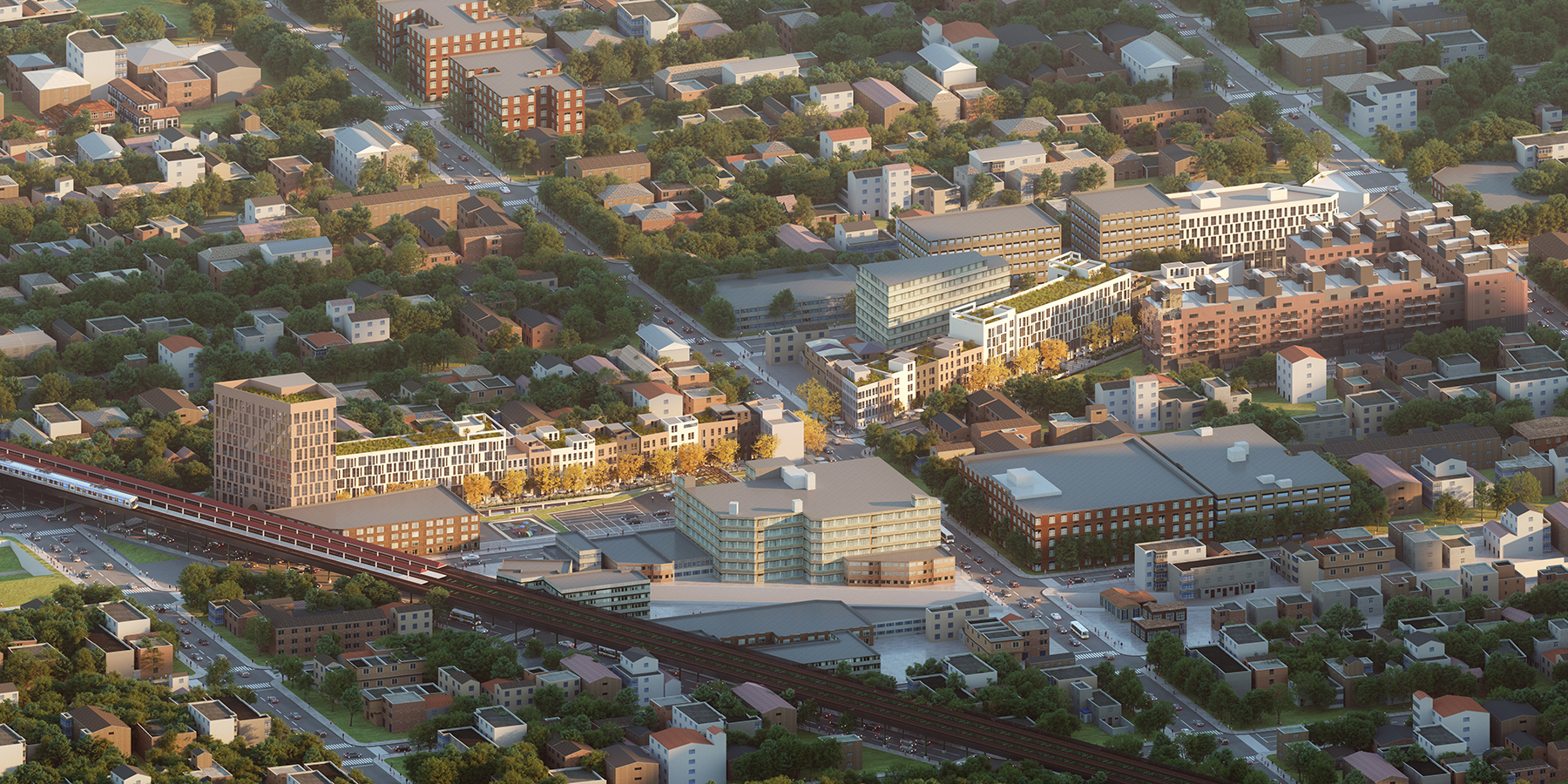
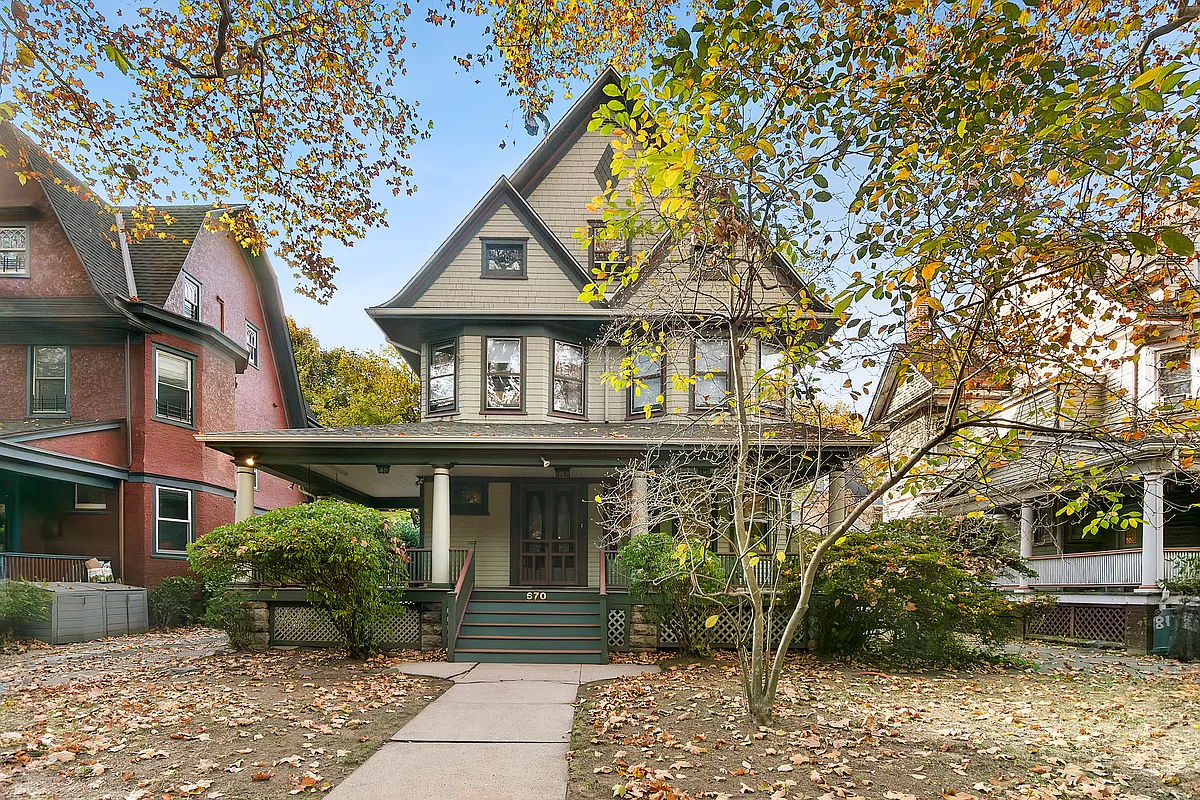
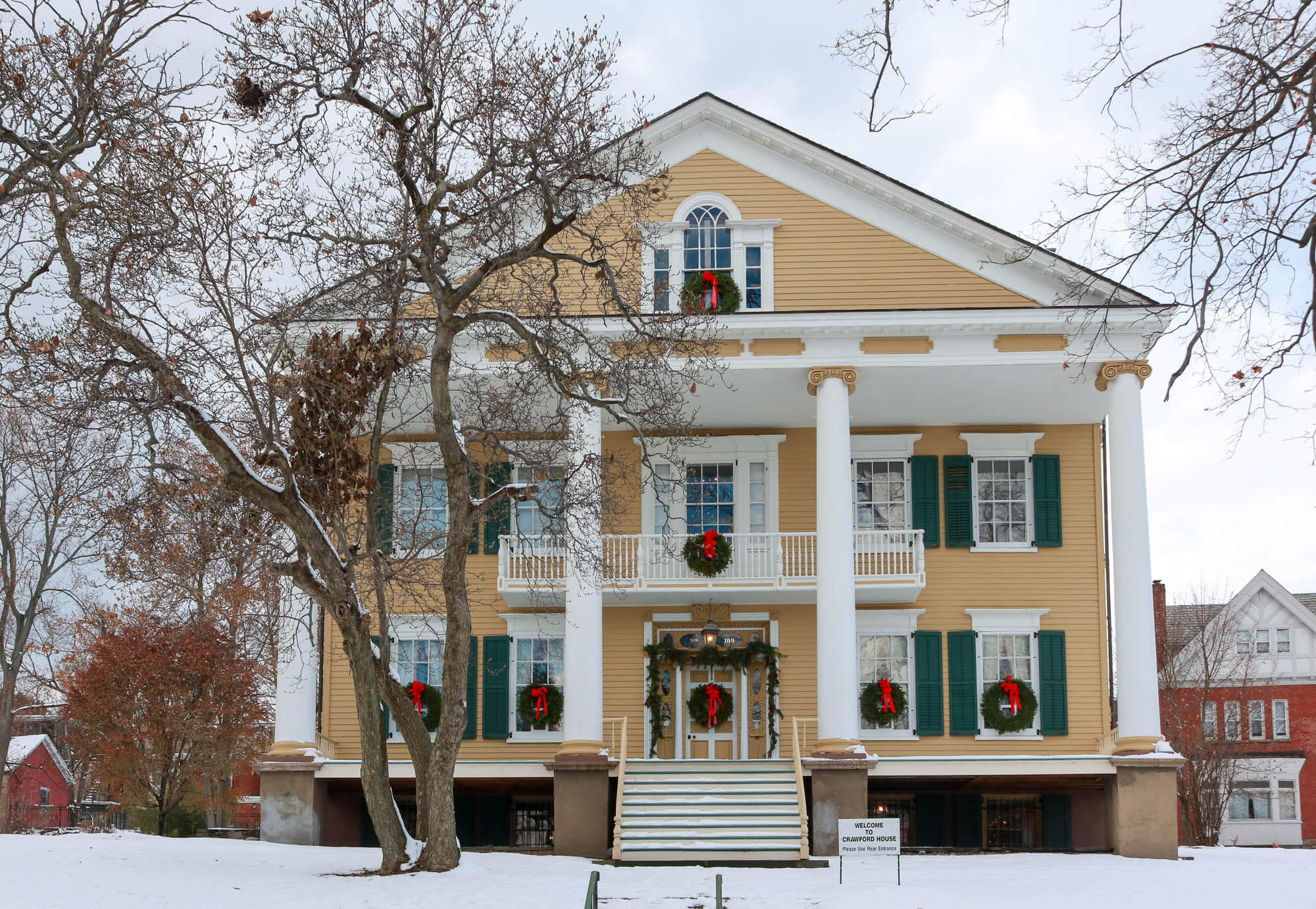
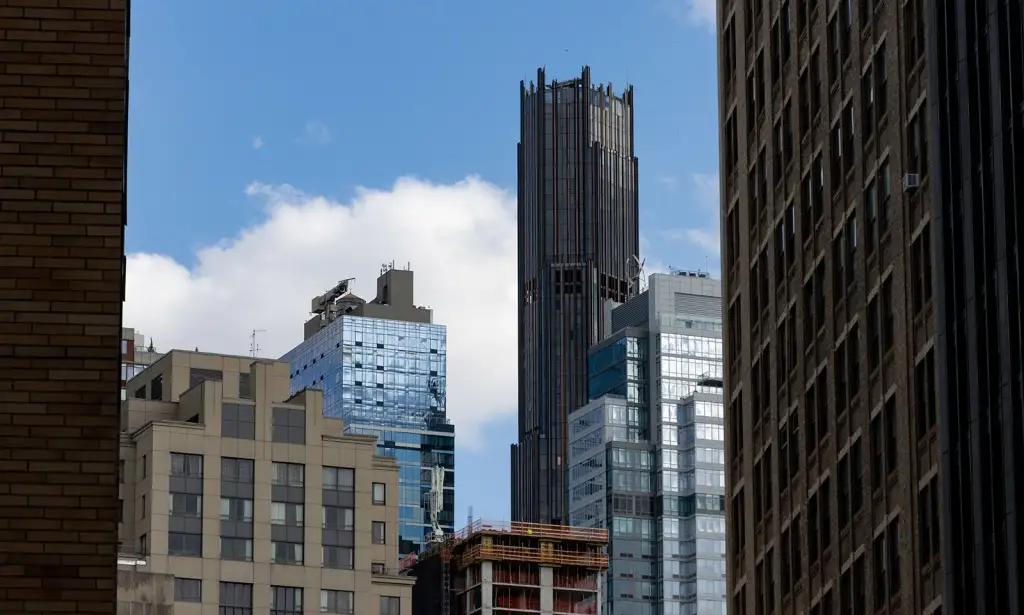
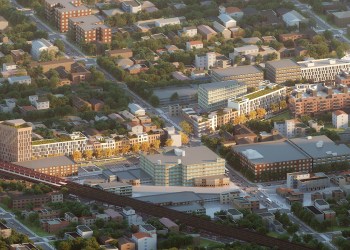



“Sorry, does the above sound like gentrification?”
No- like fascism
those are good points David but that only supports my contention as to downtown brooklyn- Fulton St. is already a financially successful shopping district. Since I don’t see that the locals who live in the new developments there will behave any differently than they do now in the Heights,why are people so dead set on destroying businesses and housing that already exist and serve their purpose? If businesses in that area depend on “commuters”, as you say, then why not improve what’s already there, and support them, instead of ripping out whole sections and putting in high end condos and mall stores? Why not give existing merchants and businesses the means to improve their businesses, and then put money into restoring facades, fixing awnings- anything to make it more attractive? Why punish people and businesses who have put in the time and money over the years to keep the Fulton St. area going?
You may think that its all about money- well then, as you yourself pointed out, the money is made on volume, and the businesses already there do volume.
I’m not sure your analysis is so on target either- seems to me it should be a win-win situation in the Hgts but don’t forget, it wasn’t high volume retailers on most of Court St. It was local businesses. I saw a lot of them come and go. Same on Montague. You can’t tell me on the weekends or in the evenings the locals can’t support local businesses the same as in Park Slope, or Cobble/Carroll Gardens? Montague should be as trendy and exciting as Smith St. (if you like that sort of thing).
Insofar as solutions? I wish I knew- how about you? I know that if i say offer tax breaks and abatements, people will scream subsidies, but those same people will jump on those same breaks and subsidies like white on rice. Sometimes I think it isn’t what we do, it’s how we think about it that will make the difference. Because paying taxes, tax breaks, abatements, etc. all come out of everyone’s pockets and we like to think this money is for the greater good of everyone. well, at least I like to think so. So the question is will home and property owners who seem to think they are carrying everyone else on their backs, ever understand that the rest of us carry the same burden, we just pay out of a differnet basket.
Once and for all no one is deriding renters.
When you buy you risk your capital.
When you rent you risk the fact that you may have to move if rents increase too much.
Will the same people that are clamoring for subsidies for renters provide insurance for owners in the case that they’re property values decrease?
Oh nevermind about the owners. If you own you must be an evil gazillionaire.
Court St was slow to develop because it caters to the people who work there. Now that Two Trees has planted the seeds of residential development with the Court House Apartments and the renovation of 110 Livingston, others are starting to pile on the bandwagon. Progress isn’t as linear as we would like, but when you build it, they will come, and they have been.
I’d love to see lots of changes on Court St….
Another restaurant to compliment Queen;
A Pottery Barn on the strip (court house would help);
Closing down the check cashing place and replace with a wine bar;
Close the Chase ATM only location;
Replacing the savings bank with a Bank of America or some kind of retail outlet;
Closing one of the Hardware stores;
Capital improvement of spirit wines;
enforcement of the age restrictions at the movie theatre (tired of watching gory R rated movies with infants to young teenagers).
Sorry, does the above sound like gentrification?
To get back on topic though.. why don’t we leave the jail closed and renovate it into affordable housing.
Bx2Bklyn – Your analysis is off – its not that wealthier Brooklyn Heights residents wont support the local economy its just that like in many downtown areas, Brooklyn Heights retail is impacted more by ‘commuters’ then by locals. This is why the vast majority of the business on Montague Street aren’t really high end b/c the lunch/work crowd is so large, that Landlords can get rents that are more sustainable by high volume retailers. The more ‘neighborhood’ areas of Cobble Hill/ Park Slope/Boreum Hill, which do not get the commuters have the more of the ‘upscale’ restaurants and boutiques that you mention.
However, the issue on this thread hasn’t been retail development but housing and I still havent heard any suggestions by you on how to deal with the gap between middle-class wages and housing prices in and around Brownstone Brooklyn?
If downtown brooklyn is the natural expansion of Brooklyn Hgts, they took a hell of a long time to realize it. Having lived in that area for years I think its interesting that for all the vaunted bring in the higher income people and they will support their neighborhood arguments, Court St, never got the kind of traction that the avenues in Park Slope or Smith St. seem to have. It’s only now, after years, that Court St. is coming up- and it still has a ways to go. It cuts through a number of majorly “upscale” neighborhoods and it was ignored for years. The Cobble Hill side began to change about 10-12 years ago- but the Brooklyn Heights end? So if Downtown is such a natural expansion, I would have expected to see Court St. already lined with upscale shops and businesses. All that tells me is that people in those neighborhoods don’t really support the local businesses- hence all the chain stores coming in. So why would anyone think they will flock in droves to Fulton St. no matter how much its developed? There is no crying need for Fulton st. from Brooklyn heights. They can’t even get as far as Court St.
“To paraphrase, it seems the current system is the worst, except for all the others”
Anon @ 6:50, if you’re going to quote Churchill, at least give him credit or is that how you got through grad school. At least you read the Economist.
Downtown Brooklyn is a natural expansion of Brooklyn Heights. Maybe not the Columbia Heights street expansion but certainly the same type of white color (wearing pink today however) professionals.
Let the market dictate what kind of building to create, if its going tobe condos then no mixed income discounts. If a rental is going up, then yes, build in below market apartments so the less fortunate can get in. Isn’t that more equitable?
Perhaps we should turn the prison into the new chic housing projects.
So many of you miss the point.
Salaries have risen app. 25-50% in the past ten years. Real Estate has risen up to 200%. The inequality of this is driving people out of neighborhoods they’ve lived in for years. It’s not like people are crying because they can’t move to CG, Park Slope etc – it’s that they’re crying because long term residents are getting forced out into areas that are either not as safe or much further away.
then there’s my particular favorite- if you rent, you have no right to say anything when you get forced out because we have no stake or investment in our neighborhood. Considering this was a city of renters for generations, it seems to me that renters have done more than their fair share- for good or bad- in creating NYC neighborhoods. And considering that Bklyn Hgts, and those neighborhoods had a majority of rentals, no one can say renters are a detriment, do not care or have no investment in their neighborhoods.
agreed Bren- its the disneyfication of NYC. We may not go Blade runner, as SS said on a thread (here perhaps?) but I can concieve of NYC becoming a theme park much like the way the South St. Seaport was sanitized in the 80’s to become a tourist version of the seaport, not the authentic seaport. I remember that seaport.